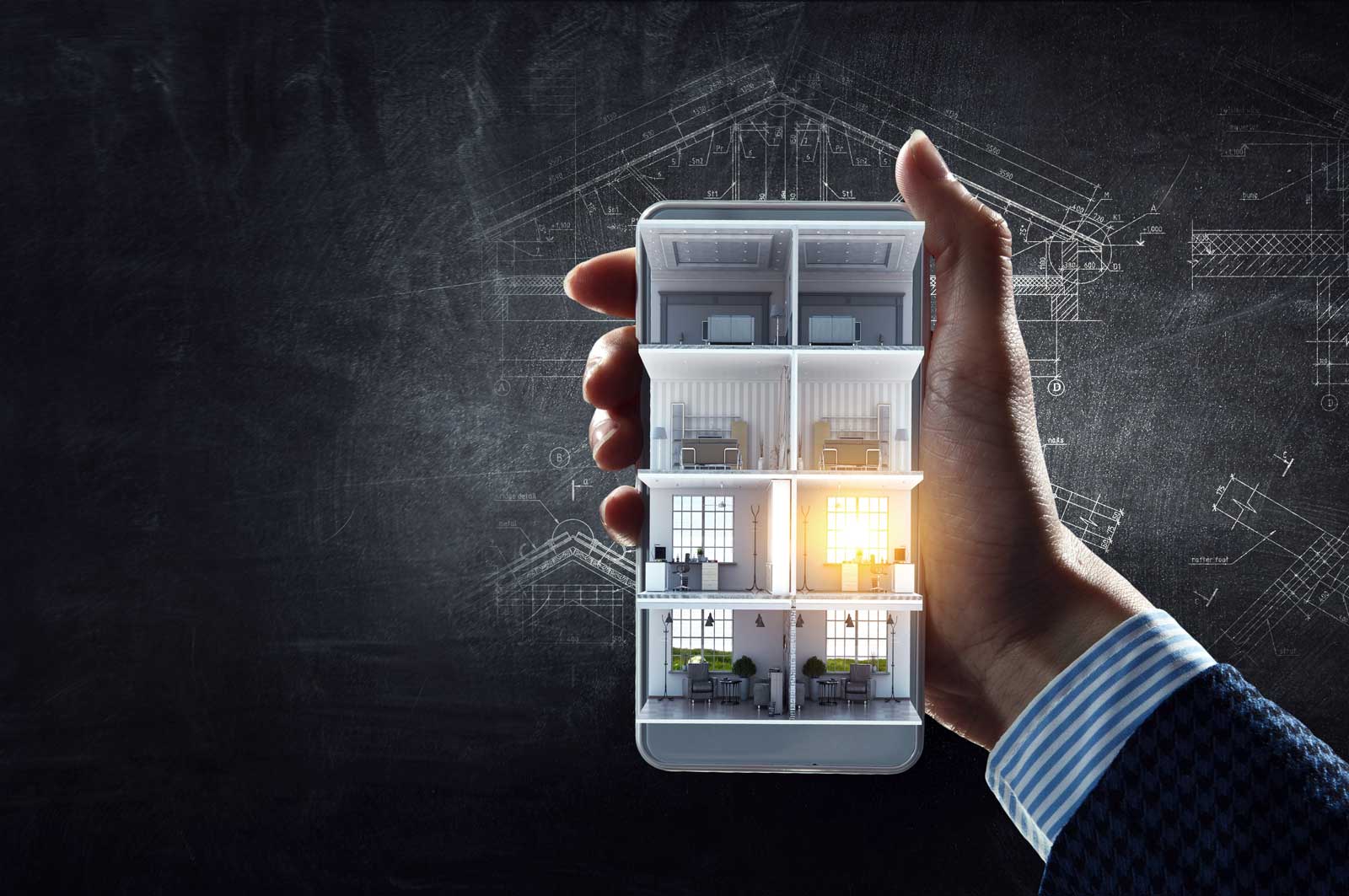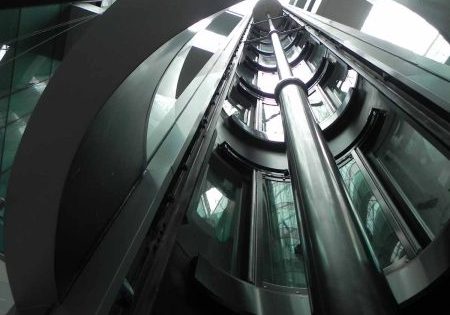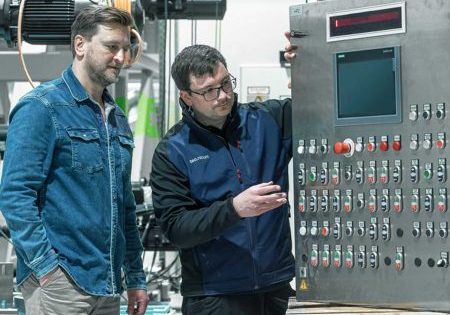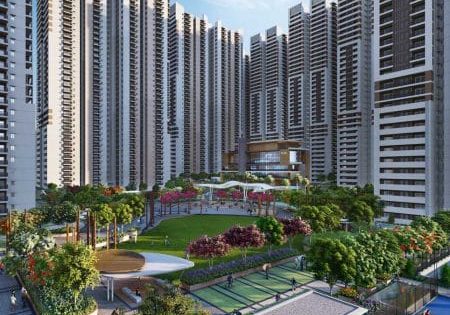How technology is propelling the Indian real estate industry forward
by Munish Baldev
In recent years, the Indian real estate landscape has undergone a profound transformation propelled by technological advancements. From streamlining processes to enhancing customer experiences, technology has become the driving force behind this evolution. In this article, we delve into the ways technology is reshaping the Indian real estate industry and explore its implications, including the vertical-transportation (VT) aspect, amid the growing trend of high-rise construction.
Digitalization of Processes
In recent years, technology has had a significant impact on the Indian real estate sector, particularly in terms of digitizing processes. Gone are the days when real estate developers and agencies relied solely on manual recordkeeping and cumbersome paperwork. Nowadays, advanced software solutions are being leveraged to manage everything from property operations to customer relationship management, or CRM. This shift toward digitalization has brought about a plethora of benefits, including improved accuracy, enhanced transparency and streamlined workflows.
Moreover, cloud-based platforms have become increasingly popular, facilitating seamless collaboration among stakeholders such as architects, contractors and project managers. By leveraging these platforms, real estate agencies can make faster and more informed decisions, leading to increased efficiency and enhanced productivity throughout the project life cycle.
Overall, the adoption of technology in the Indian real estate sector has not only streamlined processes, but also resulted in a more customer-centric approach, ultimately leading to better outcomes for all stakeholders involved.
VR and AR
In recent years, the emergence of virtual reality (VR) and augmented reality (AR) technologies has significantly impacted the real estate industry, transforming the way properties are marketed and presented to potential buyers. With the help of VR headsets and AR apps, prospective clients can now take virtual tours of properties from the comfort of their own homes without having to physically visit the site. This not only saves time and resources, but also provides a more immersive and engaging experience for buyers, allowing them to explore every nook and cranny of the property as if they were there in person. They can view the property from different angles, get a sense of the space and layout and even visualize how their own furniture and decor would look in the space. This level of interactivity and personalization helps buyers make more informed decisions and, ultimately, leads to a more satisfying and successful real estate transaction.
Big Data and Analytics
The use of big data and analytics has enabled real estate professionals to gain valuable insight into market trends, customer preferences and investment opportunities. By analyzing vast amounts of data, developers can identify emerging demand patterns, optimize pricing strategies and tailor their offerings to meet the evolving needs of buyers and investors. This data-driven approach not only enhances decision-making, but also helps mitigate risks and maximize returns on investment.
IoT and Smart Homes
The Internet of Things (IoT) has ushered in the era of smart homes, where connected devices and sensors allow for greater automation and control. From smart lighting and thermostats to security systems and appliances, homeowners can now manage their properties remotely using smartphone apps. This not only enhances convenience and comfort, but also improves energy efficiency and security, making smart homes an increasingly attractive option for buyers.
Implications for VT
With the rapid growth of urban areas in India, the demand for tall buildings has surged, highlighting the critical need for efficient VT systems like elevators and escalators. To meet this need, the field of VT has witnessed significant technological advancements that focus on enhancing user experience, safety and efficiency. Innovations such as destination control systems, regenerative drives and predictive-maintenance algorithms have revolutionized the way elevators and escalators function. These technological developments have brought about a seamless and effortless experience for users, eliminating the hassles of VT in high-rise buildings.
Sustainable Construction Practices
In addition to enhancing efficiency and user experience, technology is also driving the adoption of sustainable construction practices in the Indian real estate industry. Developers are increasingly turning to eco-friendly building materials and energy-efficient design solutions. Advanced construction techniques such as modular construction and 3D printing are reducing waste and lowering carbon footprints, while green building certifications such as LEED (Leadership in Energy and Environmental Design) and GRIHA (Green Rating for Integrated Habitat Assessment) are incentivizing developers to incorporate sustainable features into their projects. By prioritizing sustainability, the Indian real estate industry is not only contributing to environmental conservation, but also creating healthier and more resilient communities for future generations.
Government Initiatives and Policy Support
The real estate sector in India has experienced remarkable growth in recent years thanks to the support and initiatives of the Indian government. The government’s policies and programs like Smart Cities Mission and Housing for All have been instrumental in driving technological innovation in the industry. These initiatives promote the adoption of smart technologies and affordable housing solutions, which are essential for the sector’s continued growth and development.
By embracing technological advancements and addressing the associated challenges, the industry can harness the power of technology to create more efficient, sustainable and inclusive built environments that enhance the quality of life for all stakeholders.
Moreover, the Indian government is also taking regulatory reforms seriously. The Real Estate (Regulation and Development) Act (RERA) is one such reform that has enhanced transparency and accountability in the industry. It ensures that homebuyers and investors are protected from fraudulent and unfair practices. By fostering a conducive environment for technological innovation, investment and regulatory reforms, the government is empowering the Indian real estate industry to thrive in the digital age and contribute to the country’s socio-economic development.
Challenges and Opportunities Ahead
Despite the myriad benefits of technology adoption, the Indian real estate industry still faces several challenges on its path to transformation. Limited digital literacy, inadequate infrastructure and cybersecurity risks are some of the key obstacles that need to be addressed. However, these challenges also present opportunities for innovation and collaboration. By investing in digital skills training, infrastructure development and cybersecurity measures, stakeholders can overcome these barriers and unlock the full potential of technology to drive growth and competitiveness in the sector.
In conclusion, technology is reshaping the Indian real estate industry in profound ways, from digitalization and sustainability to policy support and innovation. By embracing technological advancements and addressing the associated challenges, the industry can harness the power of technology to create more efficient, sustainable and inclusive built environments that enhance the quality of life for all stakeholders. As we navigate the complexities of an increasingly digital world, the Indian real estate industry stands poised to lead the way toward a brighter and more prosperous future.
Moreover, the integration of IoT technology allows for real-time monitoring and remote diagnostics, enabling proactive maintenance and reducing downtime. This not only enhances the overall building experience for occupants, but also lowers operating costs for developers and building owners.
Additionally, advancements in design and engineering have led to the development of high-speed elevators capable of reaching dizzying heights, further supporting the trend towards vertical urbanization.
Get more of Elevator World. Sign up for our free e-newsletter.










